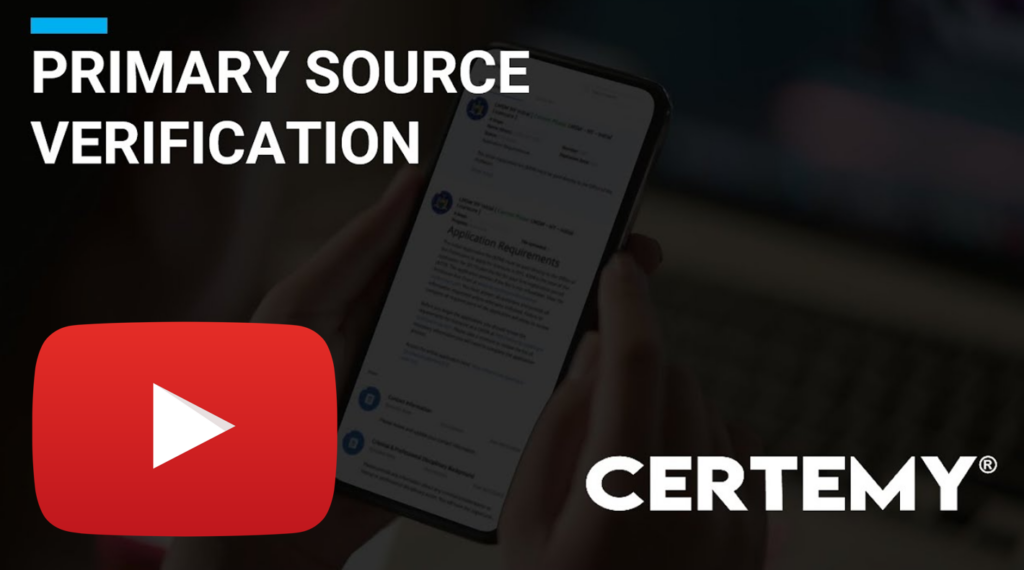
License Verification Tool | ECC – Emergency Cardiovascular Care
In Todays complex compliance environment, It is increasingly important for organizations to ensure that their employers are properly licensed and certified in order to meet all safety, legal, and regulatory requirements. Primary source verification, or PSV, is a process by which organizations can ensure that the qualifications of prospective and current employees are properly verified according to exacting standards. This level of verification can vastly reduce liability and financial risk associated with misclassification of employees and other violations of labor laws.
Ensuring legal compliance and protecting employees from harm can be a daunting task, especially when personnel are dispersed across multiple locations and departments, and state and federal laws can vary from jurisdiction to jurisdiction. This is where primary source verification solutions can provide invaluable assistance, providing employers with real-time visibility into employee licensing and credentialing and reducing the amount of manual work involved in verifying documents.By automating the primary source verification process, employers are able to save time and money and improve compliance across the organization. Automated license tracking allows companies to quickly and easily amass and review employee credentials and license requirements all in one spot, eliminating human error caused by manual filing systems. Operating within a single system of record, organizations have greater ease in tracking and managing certifications as well as creating and overseeing workflows that help to ensure the accuracy and completeness of employee licensing and credentialing.With automated tracking, companies can stay ahead of regulatory requirements and quickly identify those who may have lapsed or expired qualifications. In some cases, employers can even use automated primary source verification to automatically re-verify certifications, alerting staff of expired licenses and certifications and completing the re-certification process on their behalf. By reducing the amount of hours spent managing and manually verifying employee credentials, organizations gain greater control over compliance and are more easily able to adhere to required standards.Primary source solutions offer a number of advantages to organizations in the healthcare sector. For example, certifications such as Advanced Cardiac Life Support (ACLS) and Emergency Cardiovascular Care (ECC) require regular exams and coursework to maintain certification. Automated tracking and PSV solutions ensure that healthcare providers maintain updated certifications and are better prepared to handle life-threatening situations in the event of an emergency.In addition to safeguarding employeesafety, primary source verification also helps organizations mitigate financial and legal risks associated with noncompliance. Under the Fair Labor Standards Act, misclassifying employees as exempt from overtime eligibility can result in costly penalties, fines, and damages. By verifying the proper credentials of all employees, employers can reduce the risk of being fined for misclassifying and take the confusion out of qualification and licensing requirements.Primary source verification solutions provide organizations with greater visibility and control over their employee compliance programs. By eliminating hours of manual work and mitigating financial and legal risks associated with noncompliance, employers are able to benefit from improved productivity, staff utilization, and team performance. As compliance requirements continue to increase, automated primary source verification will be a key component in creating a successful compliance program.Topics:

